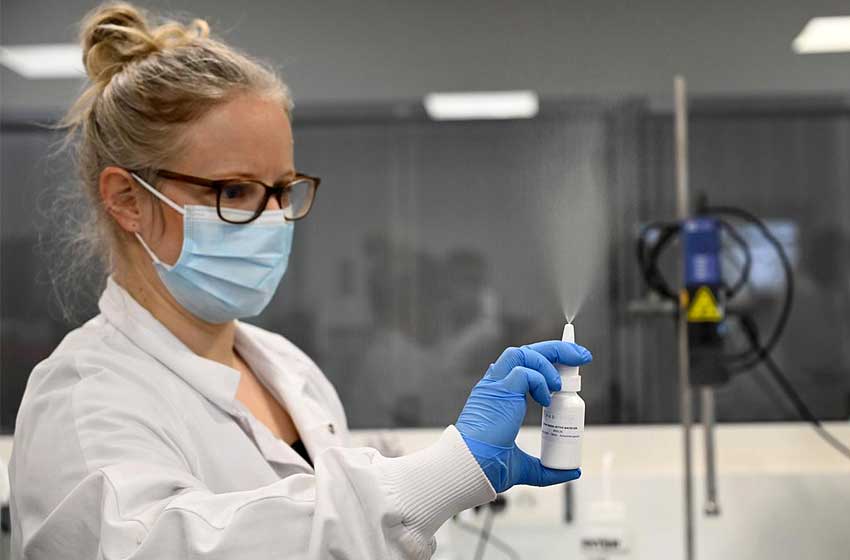Can intranasal vaccines be more effective against Covid than vaccine shots to the arm?
- Handpicked
Mark Lynn
- 2 September 2021
- 0
- 410

Due to the rise of new strains of Covid, scientists are beginning to explore the possibility of intranasal vaccines being more effective than the current practices of vaccination by shots.
The current vaccines like the ones by Pfizer, Moderna, Johnson & Johnson are very effective in slowing the spread of Covid and preventing deaths. These vaccines also provide immunity against new Covid variants. However, they are not 100% effective at blocking the infection. This has become a challenge in the scientific community. In light of these new developments, scientists are beginning to explore new ways to deliver the vaccine so as to make them more effective and durable.
One recommendation that is gathering steam among scientists is vaccination by spritz into the nose rather than the usual jab to the arm.
New Studies
In recent months, vaccine manufacturers have been in the process of producing booster shots to deliver third doses to patients who have received the first and second shots. Fortunately, there are studies that have been released that show that nose spritz is more effective. These studies are backed by tests conducted on hamsters, mice, ferrets and non-human primates. Currently, there are six such candidate vaccines under clinical phase one trial.
Moreover, just two weeks ago, the American Society for Virology announced that a single shot of its Meissa Vaccine delivered as an intranasal spray showed promising results when delivered to non-human primates. Many immunologists believe that these new shots will offer better immunity than the current practice of delivering jabs to the arm. They hold this opinion because intranasal vaccines work in the same way that the Covid virus affects victims through the mucous membranes.
How does it work?
The usual shot in the arm works from inside out. As the vaccine spreads through our bloodstream, it creates immunity throughout the body and some of the antibodies the vaccine creates spreads into our nasal passageways. However, in the case of nasal sprays, the vaccine works the other way around. It works by immunising nasal passages first before spreading to the rest of the body. Already there are plans to launch clinical trials later this month on about 80 adults within the age bracket of 18-75 years at three different test sites in the US.
Will it work?
Only time will tell, but from what we know, nasal vaccines are known to be effective. Common examples of oral vaccines that work this way are polio and cholera vaccines. These vaccines spread through the mucosal tissues in the intestinal tract just like the Covid intranasal vaccine will work. So researchers believe that the new shot will be as effective as the polio vaccine for fighting Covid. Although intranasal vaccines are not as popular as arm shots, many hope that the rise of a third Covid wave will change that.






